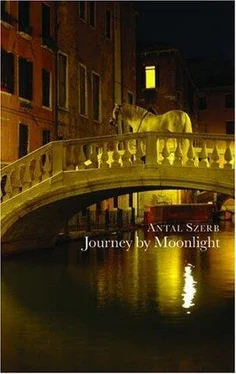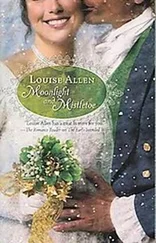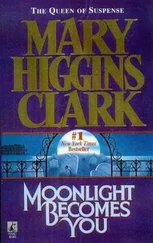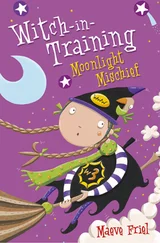Mihály politely declined this commission. For the moment it did not much interest him.
“But why was it only the ancient Greeks who were so aware of this death symbolism?” he asked.
“Because the nature of civilisation everywhere was such that, even with the Greeks, it diverted people’s minds away from the reality of death, and compensated for the yearning for death just when the basic appetite for life was declining. It was Christian civilisation that did this. But perhaps those peoples Christianity had to subdue brought with them an even greater death-cult than existed among the Greeks. The Greeks were not in fact a particularly death-centred race. It was just that they were able to express everything so much better than other people. The real death-cultists were the races of the north, the Germans, woodsmen of the long nights, and the Celts. Especially the Celts. The Celtic legends are full of the islands of the dead. These islands later Christian observers, in their usual fashion, transformed to islands of the blessed, or happy isles, and simple-minded folklore-collectors generally followed them in this error. But tell me, was that an island of the ‘blessed’ that sent its fairy envoy to Prince Bran with such overwhelming constraint? Or was it, I ask, from ‘happiness’ that a man was turned to dust and ashes the moment he left the island? And why do you think they laughed, those people on the island, the ‘other island’? Because they were happy? Like hell they were. They were laughing because they were dead, and their grins were nothing more than the hideous leer of a corpse, like those you see on the faces of Indian masks and Peruvian mummies. Sadly it isn’t my field, the Celts. But you should take them up. You would have to learn, quickly and without fail, Irish and Welsh, there’s no other way. And you would have to go to Dublin.”
“Fine,” said Mihály. “But say a bit more, if you would. You’ve no idea how much this interests me. Why did it come to an end, this human yearning for the islands of the dead? Or perhaps the feeling is still with us? In a word, where does the story end?”
“I can only answer with a bit of home-made Spenglerism. When the people of the north came into the community of Christendom, in other words European civilisation, one of the first consequences was, if you remember, that for two hundred years everything revolved around death. I’m referring to the tenth and eleventh centuries, the centuries of the monastic reforms begun at Cluny. In early Roman times Christianity lived under constant physical threat, so that it became the darkest of death-cults, rather like the religion of the Mexican Indians. Later of course it took on its truly Mediterranean and humane character. What happened? The Mediterraneans succeeded in sublimating and rationalising the yearning for death, or, in plain language, they watered down the desire for death into desire for the next world, they translated the terrifying sex-appeal of the death-sirens into the heavenly choirs and rows of angels singing praises. Nowadays you can yearn comfortably after the glorious death that awaits the believer: not the dying pagan’s yearning for erotic pleasure, but the civilised and respectable longing for heaven. The raw, ancestral pagan death-desire has gone into exile, into the dark under-strata of religion. Superstition, witchcraft, Satanism, are among its manifestations. The stronger civilisation becomes, the more our yearning for death thrives in the subconscious.
“Think about it. In civilised society death is the most absolute of all taboo-subjects. It isn’t done to mention it. We use circumlocutions to name it in writing, as if it were some sort of ridiculous solecism, so that the dead person, the corpse, becomes the ‘deceased’, the ‘dear departed’, the ‘late’, in the same way as we euphemise the acts of digestion. And what you don’t talk about, it isn’t done to think about either. This is civilisation’s defence against the potential danger of a contrary instinct working in man against the instinct for life, an instinct which is really cunning, calling man towards annihilation with a sweet and strong enticement. To the civilised mind this instinct is all the more dangerous because in civilised man the raw appetite for life is so much weaker. Which is why it has to suppress the other instinct with every weapon available. But this suppression isn’t always successful. The counter-instinct breaks surface in times of decadence, and manages to overrun the territory of the mind to a surprising degree. Sometimes whole classes of society almost consciously dig their own graves, like the French aristocracy before the Revolution. And, I’m afraid, the most current example today are the Hungarians of Transdanubia …
“I don’t know if you’re still following me? People usually get me spectacularly wrong whenever I talk on this subject. But I can do a little test. Do you recognise this feeling? A man is walking on a wet pavement and slips. His one leg collapses under him, and he starts to fall backwards. At the precise moment when I lose my balance, I am filled with a sudden ecstasy. Of course it lasts only a second, then I automatically jerk back my leg, recover my balance, and rejoice in the fact that I didn’t fall. But that one moment! For just one moment I was suddenly released from the oppressive laws of equilibrium. I was free. I began to fly off into annihilating freedom … Do you recognise this feeling?”
“I know rather more about this whole business than you think,” Mihály said quietly.
Waldheim suddenly looked at him in surprise.
“Eh, you say that in a strange voice, old chap! And you’ve gone so pale! What’s wrong with you? Come out on to the balcony.”
Out on the balcony Mihály recovered himself in an instant.
“What is this, damn you?” said Waldheim. “Are you hot? Or hysterical? You should consider that if you were to commit suicide under the influence of what I’ve said I shall deny that I ever knew you. What I am saying is of a completely theoretical significance. I really detest those people who like to draw practical conclusions from scholarly truths, who ‘apply learning to real life’, like engineers who turn the propositions of chemistry into insecticides for bedbugs. It translates, in Goethe’s words, as: ‘life is grey, but the golden tree of theory is always green’. Especially when the theory itself is still as green as this is. Now I hope I’ve restored your equilibrium. Here’s a general rule … don’t try to live the life of the soul. I think that’s your problem. An intelligent person doesn’t have a spiritual life. And tomorrow you must come with me to the garden party at the American Institute of Archaeology. You’ll have a bit of fun. Now go to hell, I’ve still got work to do.”
THE AMERICAN ARCHAEOLOGICAL INSTITUTE occupied a resplendent building set in a large garden on the Gianicolo hill. Its annual garden party was a major event in the social calendar of Rome’s Anglo-Saxon community. Its organisers were not just the American Archaeologists, but more importantly the American painters and sculptors living in Rome, and the guests all those closely or loosely connected with them. It was always a particularly varied and particularly interesting group of people who assembled on the night.
But Mihály experienced little of the variety and interest of the company. He was again in that state of mind in which everything seemed to reach him through a veil of fog — the scented enchantment of the summer night, blending with the dance-music, the drinks and the women he chatted to, he had no idea about what. His Pierrot costume and his domino mask and cape completely distanced him. It wasn’t himself there, but someone else, a dream-locked domino mask.
Читать дальше












